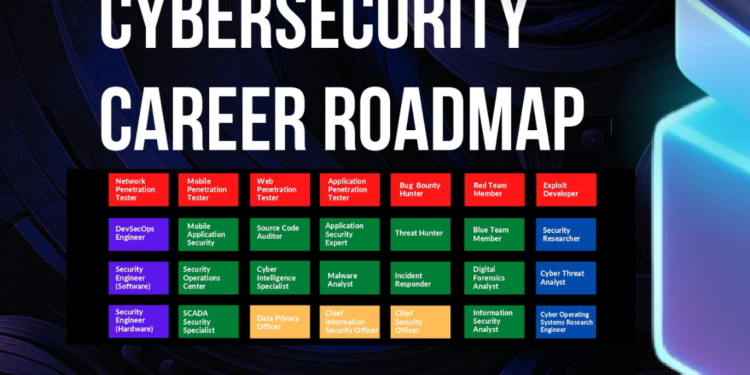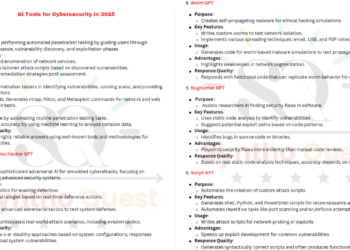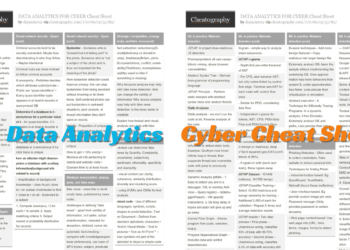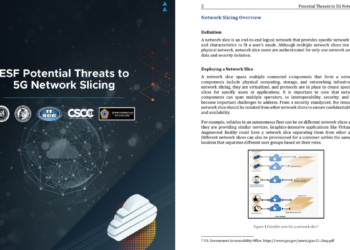As technology continues to advance at a rapid pace, the need for skilled professionals in the field of cyber security has never been greater. With cyber attacks becoming increasingly sophisticated and prevalent, organizations of all sizes and industries are recognizing the importance of investing in robust security measures to protect their sensitive data and systems.
However, the field of cyber security is vast and ever-evolving, encompassing a wide range of roles and specializations. This can make it challenging for individuals to navigate their career path and determine the necessary steps to achieve their goals.
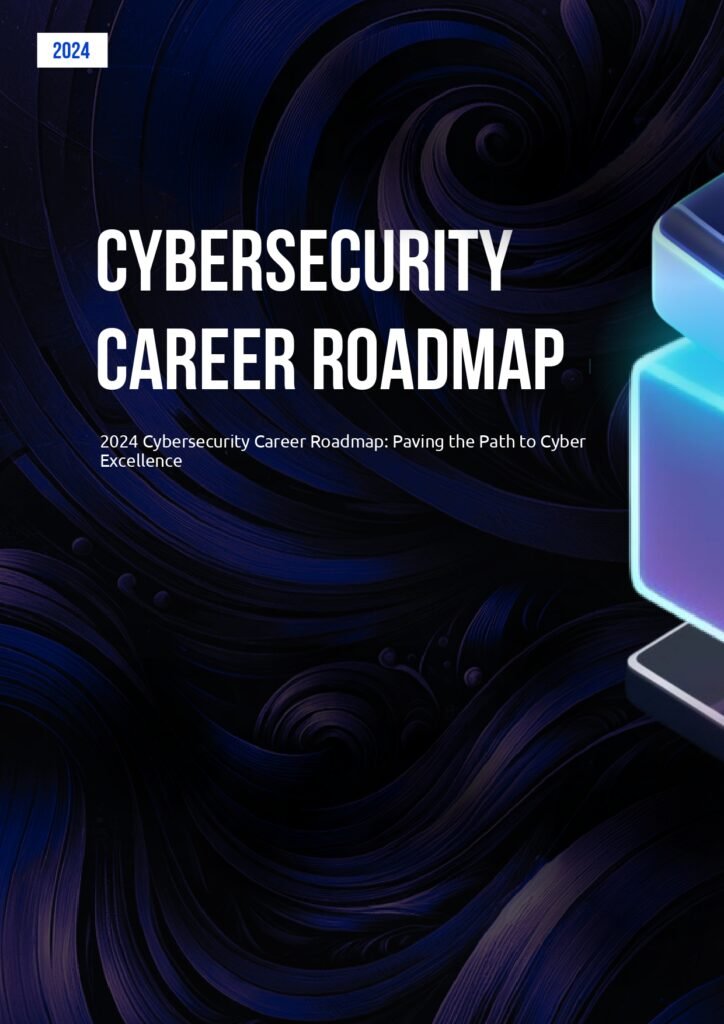
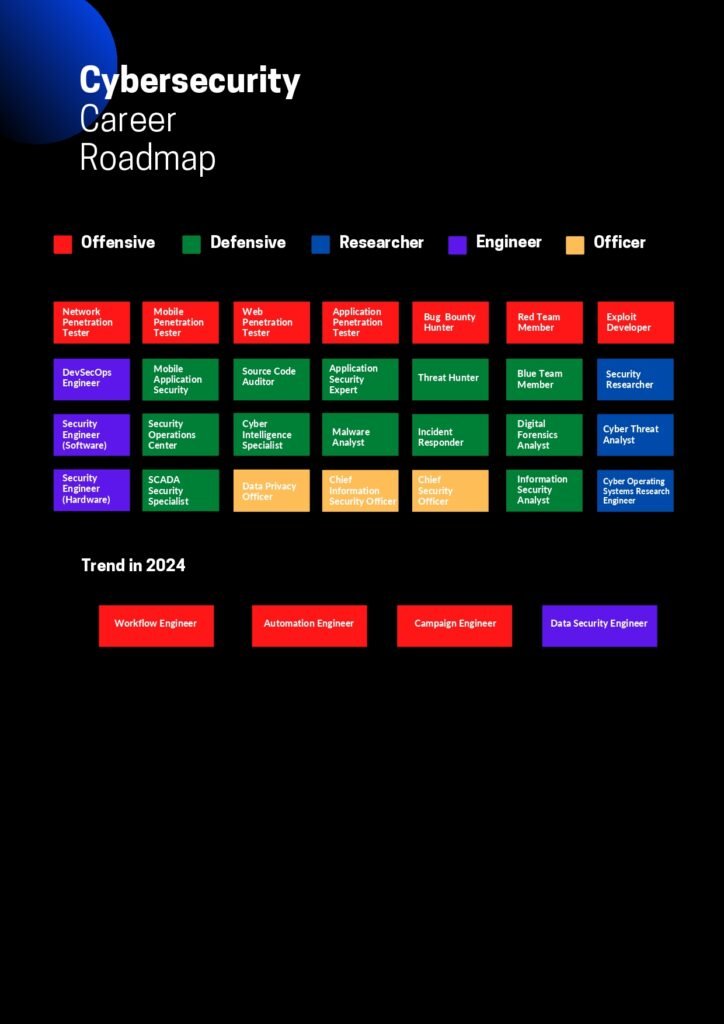
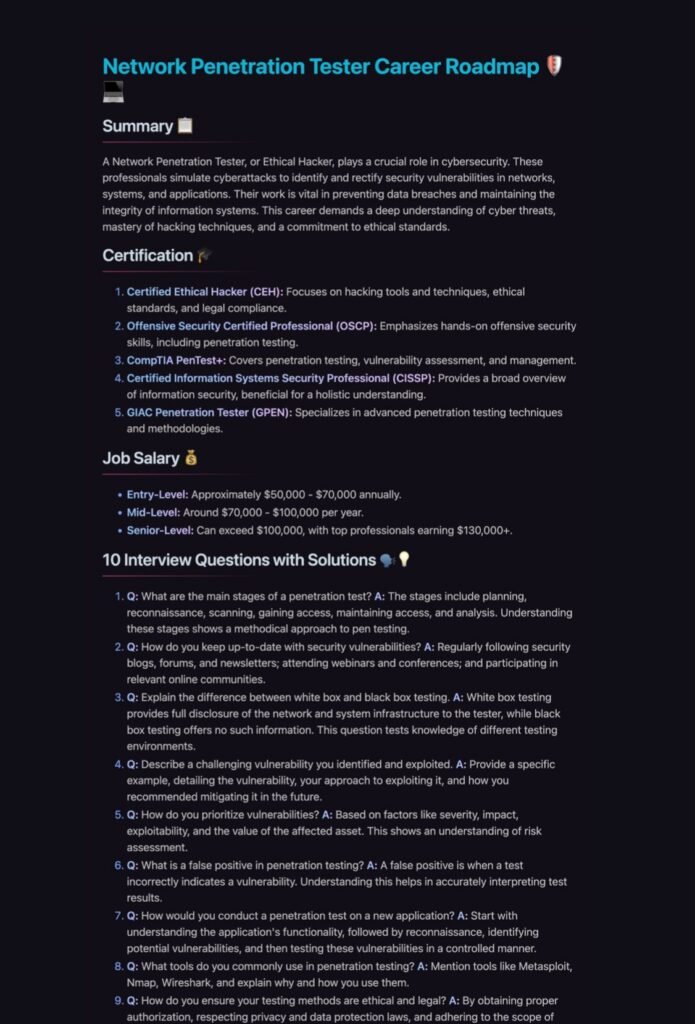
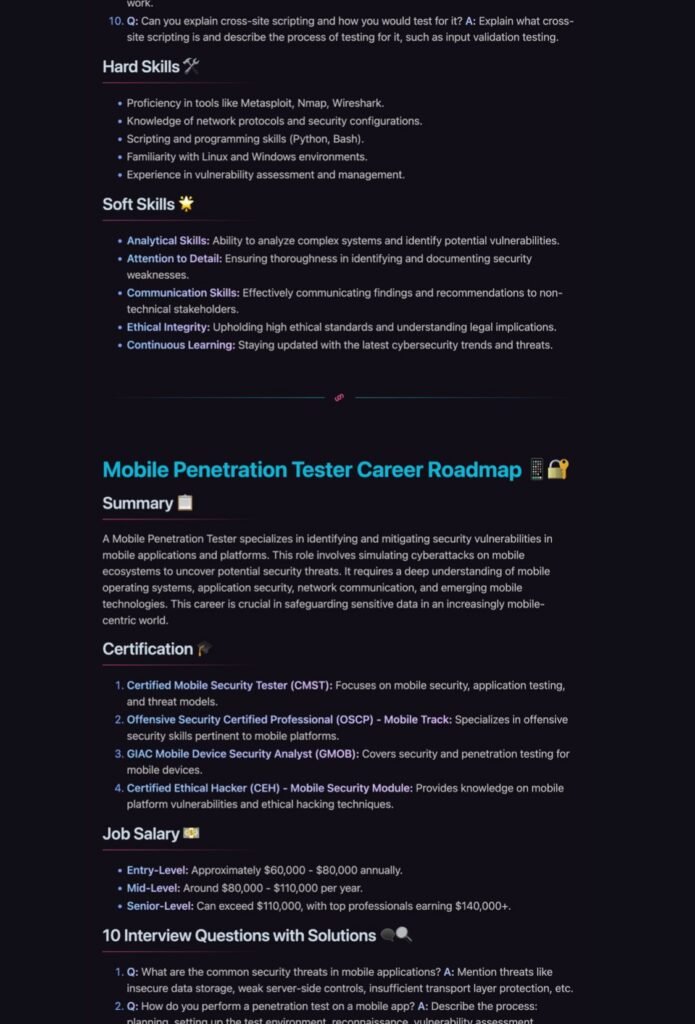
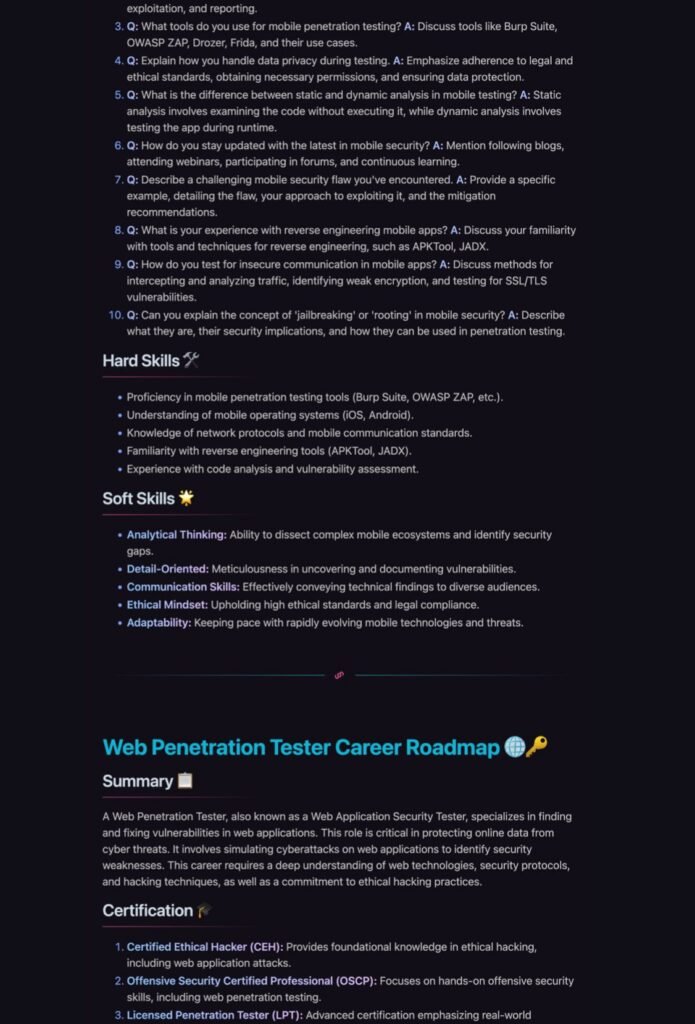
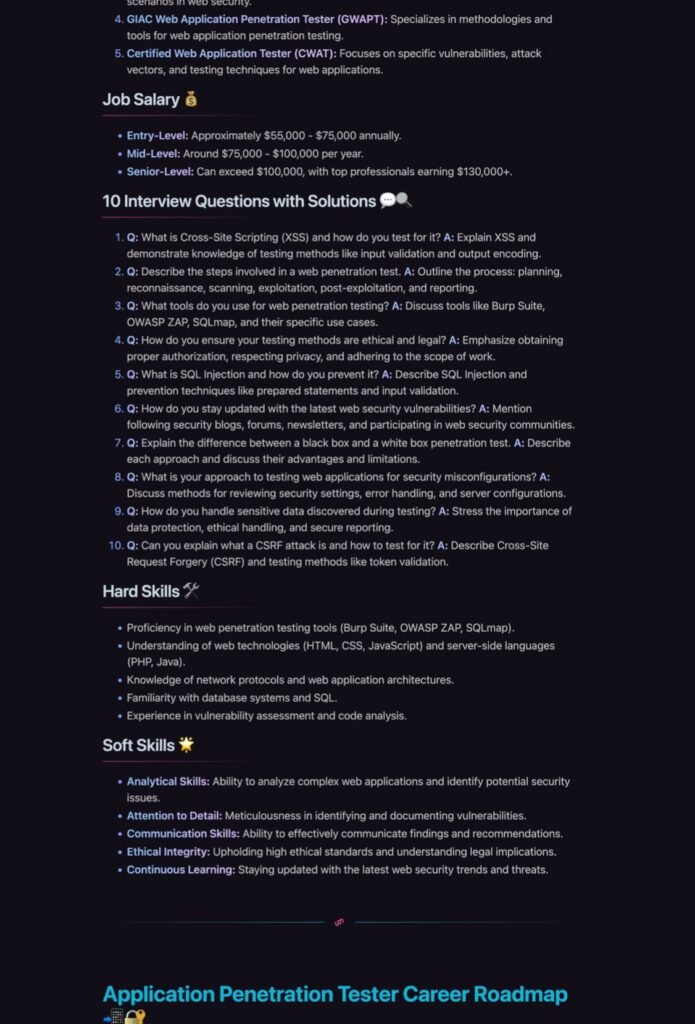
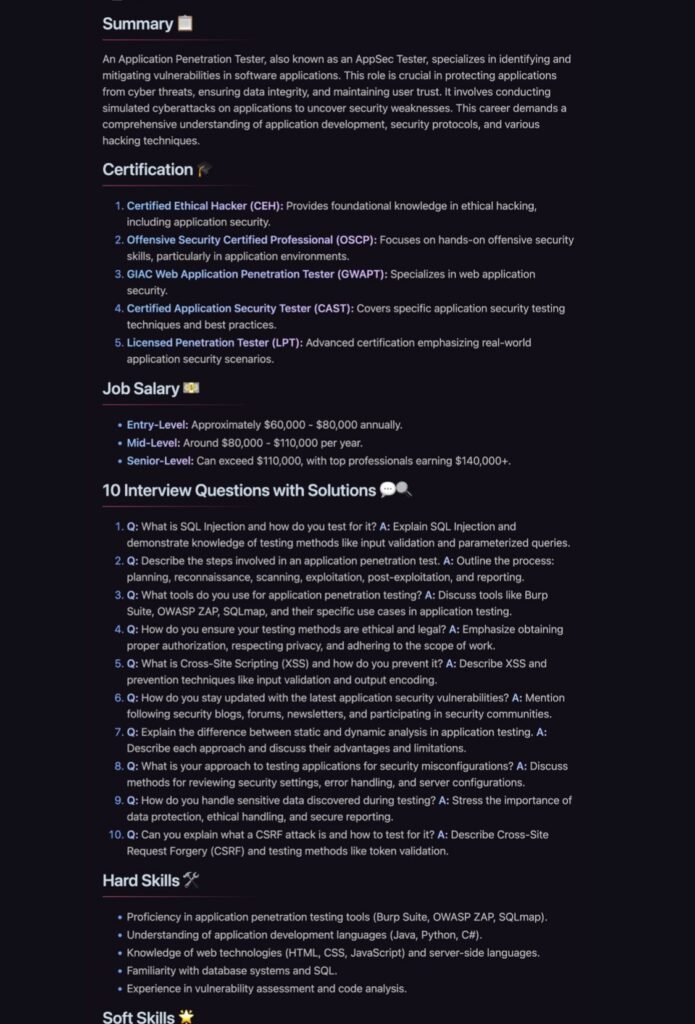
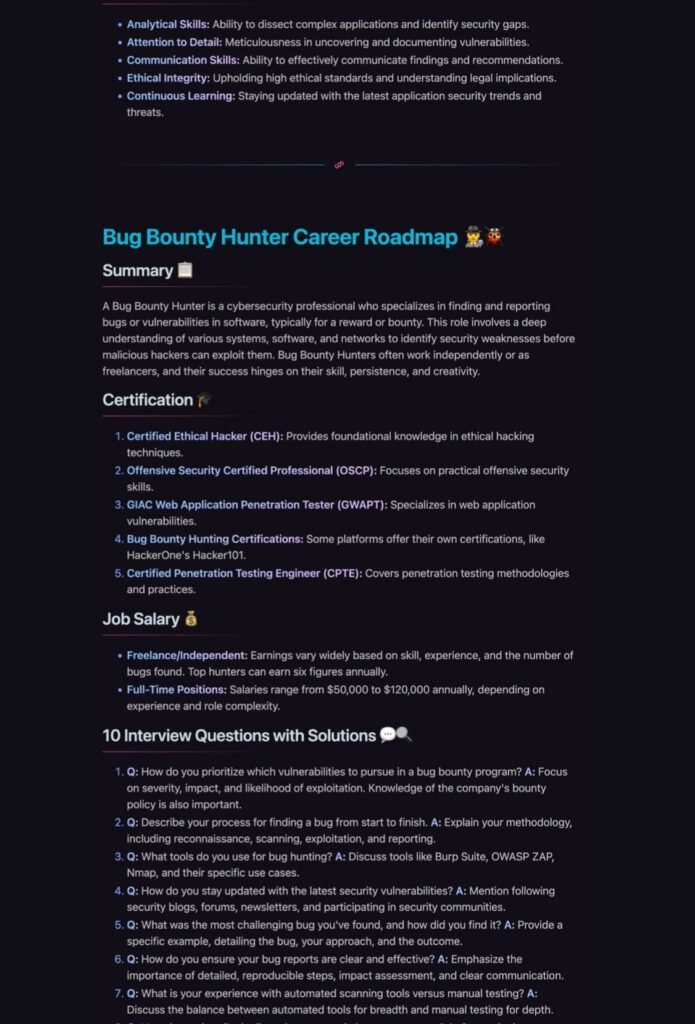
That’s where this comprehensive guide comes in. We have carefully curated a roadmap that outlines the key milestones you need to achieve in order to build a successful career in cyber security. Whether you are just starting out or looking to advance your existing career, this guide will provide you with the information and resources you need to make informed decisions and take the necessary steps to reach your goals.
Throughout this guide, we will cover various aspects of the cyber security career roadmap, including:
- The foundational skills and knowledge required to enter the field
- The different roles and specializations within cyber security
- The educational and certification pathways available to aspiring cyber security professionals
- The importance of gaining practical experience through internships, projects, and hands-on learning
- The ongoing professional development and continuous learning required to stay up to date in this rapidly changing field
- The various career paths and opportunities available in cyber security
By following this roadmap and taking advantage of the resources and opportunities available to you, you will be well-equipped to navigate the ever-changing landscape of cyber security and build a successful and fulfilling career in this exciting field.
Within the cyber security field, there are numerous paths you can take, each requiring a unique set of skills and expertise. This guide aims to outline these paths and help you understand the different roles and responsibilities associated with each one.
First and foremost, it is crucial to establish a solid foundation in cyber security. This involves gaining a comprehensive understanding of the core concepts and principles that underpin the field. You will need to familiarize yourself with topics such as network security, cryptography, risk management, and ethical hacking. These foundational skills will serve as the building blocks for your career and provide you with a strong knowledge base to draw upon.
Once you have established a solid foundation, you can begin to explore the various career paths available to you. One popular path is that of a security analyst. Security analysts are responsible for monitoring and analyzing security systems to identify any potential vulnerabilities or threats. They play a crucial role in ensuring the overall security of an organization’s network and systems.
Another path you may choose to pursue is that of a penetration tester, also known as an ethical hacker. Penetration testers are tasked with identifying weaknesses in an organization’s systems and networks by actively attempting to exploit them. Their goal is to uncover vulnerabilities before malicious hackers can exploit them, allowing the organization to strengthen its security measures.
If you have a passion for investigating cybercrimes and catching cybercriminals, a career as a digital forensics analyst may be the right path for you. Digital forensics analysts are responsible for collecting and analyzing digital evidence to support criminal investigations. They work closely with law enforcement agencies to uncover the truth behind cybercrimes and assist in bringing the perpetrators to justice.
Alternatively, you may choose to specialize in a specific area of cyber security, such as cloud security, mobile security, or incident response. These specializations require in-depth knowledge and expertise in their respective areas and can open up unique career opportunities.
Regardless of the path you choose, continuous learning and professional development are essential in the ever-evolving field of cyber security. Staying up-to-date with the latest trends, technologies, and best practices will ensure that you remain competitive and relevant in the industry.
By following the roadmap outlined in this guide, you will be equipped with the knowledge and skills necessary to navigate the world of cyber security and advance your career. Whether you are just starting out or looking to make a career change, this guide will serve as your roadmap to success.
The Content of the Guide
The guide is divided into several sections, each focusing on a specific aspect of the cyber security career roadmap. Here is an overview of what you can expect to find:
- Foundational Knowledge: This section will cover the fundamental concepts and principles of cyber security. It will provide you with a solid understanding of the basics, including the different types of threats, attack vectors, and defense mechanisms. Additionally, it will delve into topics such as cryptography, network protocols, and security policies.
- Skills Development: In this section, we will outline the essential skills you need to develop in order to excel in the field of cyber security. From technical skills like programming and network security, to soft skills such as communication and problem-solving, we will guide you on how to acquire and enhance these skills. Furthermore, we will provide practical exercises and real-world scenarios to help you apply these skills in a hands-on manner.
- Certifications and Education: Here, we will discuss the importance of certifications and formal education in the cyber security industry. We will highlight some of the most recognized certifications and educational programs available, and provide guidance on how to choose the right ones for your career goals. Additionally, we will explore the benefits of attending conferences, workshops, and webinars to stay updated with the latest industry trends.
- Specializations: Cyber security is a vast field with numerous specializations to choose from. This section will explore some of the most popular specializations, such as ethical hacking, incident response, and risk management. We will help you understand the unique requirements and career paths associated with each specialization. Furthermore, we will provide insights into emerging specializations, such as cloud security and IoT security, to help you stay ahead of the curve.
- Industry Experience: Gaining practical experience is crucial for a successful career in cyber security. In this section, we will discuss various ways to gain industry experience, including internships, volunteering, and participating in capture the flag (CTF) competitions. We will also provide tips on how to build a strong professional network, such as joining industry associations, attending networking events, and leveraging social media platforms.
- Job Search and Career Advancement: Finding job opportunities and advancing in your career can be challenging in any industry. In this section, we will share strategies and resources to help you navigate the job market, including resume writing tips, interview techniques, and ways to stay updated with the latest industry trends. Additionally, we will provide guidance on how to create a compelling online presence and showcase your skills through platforms such as GitHub and LinkedIn.
- Continuing Education and Professional Development: Cyber security is a rapidly evolving field, and continuous learning is essential to stay ahead. In this final section, we will discuss the importance of ongoing education and professional development, and provide recommendations for resources and platforms to further enhance your knowledge and skills. We will explore options such as online courses, industry certifications, and professional communities where you can engage with like-minded professionals and stay updated with the latest advancements in the field.
In conclusion, this comprehensive guide will equip you with the knowledge, skills, and resources needed to embark on a successful career in the field of cyber security. Whether you are just starting out or looking to advance in your current role, this guide will serve as a valuable roadmap to help you navigate the ever-changing landscape of cyber security. So, get ready to dive deep into the world of cyber security and unlock endless opportunities for growth and success.
Key Topics
Throughout the guide, we will cover a wide range of topics related to the cyber security career roadmap. Some of the key topics include:
- The role of cyber security professionals: We will delve into the responsibilities and duties of cyber security professionals, exploring the different roles they can play within organizations.
- Common cyber security job titles and responsibilities: We will provide an overview of the various job titles in the field of cyber security, along with their associated responsibilities and skill requirements.
- Understanding the cyber threat landscape: In this section, we will analyze the current cyber threat landscape, discussing the different types of threats that organizations face and the potential impact they can have.
- Building a strong foundation in networking and systems: Networking and systems form the backbone of any organization’s infrastructure. We will discuss the fundamentals of networking and systems, highlighting the importance of a solid foundation in these areas for a successful career in cyber security.
- Mastering programming and scripting languages: Programming and scripting languages are essential tools for cyber security professionals. We will explore the most commonly used languages in the field and provide resources for mastering them.
- Exploring different operating systems and platforms: In this section, we will examine various operating systems and platforms, discussing their strengths, weaknesses, and security considerations.
- Learning about cryptography and encryption: Cryptography and encryption play a crucial role in securing sensitive information. We will explain the principles of cryptography and encryption, as well as their practical applications in the field of cyber security.
- Understanding risk management and compliance: Risk management and compliance are essential components of an effective cyber security strategy. We will explore methodologies for identifying and mitigating risks, as well as the regulatory frameworks that organizations must adhere to.
- Developing incident response and forensic analysis skills: Incident response and forensic analysis are critical skills for cyber security professionals. We will discuss the processes and techniques involved in handling security incidents and conducting forensic investigations.
- Exploring ethical hacking and penetration testing: Ethical hacking and penetration testing are valuable tools for identifying vulnerabilities in systems and networks. We will explore the ethical hacking process and discuss the importance of penetration testing in ensuring the security of organizational assets.
- Building a professional network and personal brand: Networking and personal branding are essential for career advancement in the field of cyber security. We will provide tips and strategies for building a strong professional network and establishing a personal brand.
- Preparing for job interviews and career advancement: In this section, we will offer guidance on how to prepare for job interviews in the cyber security field, as well as strategies for advancing one’s career once employed.
The Cyber Security Career Roadmap guide consists of 173 pages filled with valuable information, practical tips, and resources to help you on your journey. Each page is carefully crafted to provide you with the most relevant and up-to-date information, ensuring that you have a comprehensive resource at your fingertips.
What to Expect in the Guide
Within the 173 pages of this guide, you will find a wealth of information that covers all aspects of a career in cyber security. The guide is divided into several sections, each focusing on a specific area of expertise within the field. Whether you are just starting out or looking to advance your career, there is something for everyone in this comprehensive resource.
The first section of the guide provides an overview of the cyber security industry, including its history, current trends, and future projections. This section will give you a solid foundation and understanding of the field, allowing you to navigate the industry with confidence.
The subsequent sections dive deeper into the various domains of cyber security, such as network security, application security, and cloud security. Each domain is explored in detail, providing you with insights into the specific skills, certifications, and job roles associated with that area. Whether you are interested in becoming a penetration tester, a security analyst, or a cyber security manager, you will find the necessary information to guide you on your chosen path.
In addition to the domain-specific sections, the guide also includes chapters on career development, such as building a strong resume, preparing for interviews, and networking within the industry. These chapters are designed to help you not only land your dream job but also excel in your chosen career.
Throughout the guide, you will also find practical tips and advice from industry experts who have years of experience in the field. Their insights and recommendations will provide you with valuable guidance and help you avoid common pitfalls along the way.
Furthermore, the guide is packed with additional resources, including recommended books, online courses, and tools that can further enhance your knowledge and skills. These resources have been carefully curated to ensure their relevance and quality, saving you time and effort in searching for reliable sources of information.
Whether you are a student considering a career in cyber security or a seasoned professional looking to expand your expertise, the Cyber Security Career Roadmap guide is an invaluable resource that will empower you to achieve your goals. With its comprehensive coverage, practical tips, and wealth of resources, this guide is your ultimate companion in navigating the ever-evolving world of cyber security.
Download from Link
To access the Cyber Security Career Roadmap guide, simply click on the following link: [ Download Link].
Once you have downloaded the guide, you can save it to your device or print it out for easy reference. We hope you find this guide helpful and wish you all the best in your cyber security career!
Now that you have downloaded the Cyber Security Career Roadmap guide, you are one step closer to achieving your goals in the field of cybersecurity. This comprehensive guide is designed to provide you with valuable insights, practical advice, and a clear roadmap to navigate your way through the various stages of your career.
